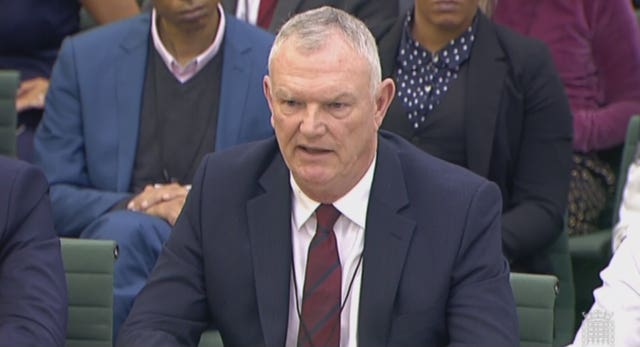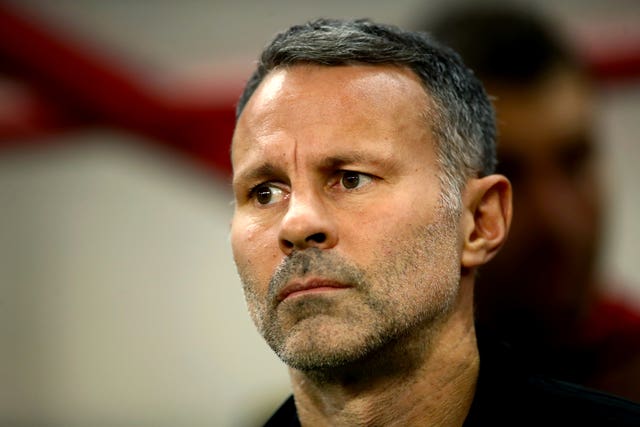An expert group has been set up to investigate whether concussion substitutes could be introduced to football.
The football and technical advisory panels of the sport's law-making body, the International Football Association Board, met in Zurich on Wednesday to discuss how head injuries are treated, which included looking at the possibility of concussion substitutes.
The panels recommended that due to "the complex nature of assessing and managing concussion at different levels of the game", an expert group should be established to investigate further.
âš½ï¸ Successful meeting of The IFAB in Zurich! The Advisory Panels continue to discuss on key topics.
âž¡ï¸ Read more about the results: https://t.co/daIpDahVUc pic.twitter.com/JPL6G3AMae
— The IFAB (@TheIFAB) October 23, 2019
IFAB said in a media release: "The panels agreed that any solutions would have to take account of both player welfare and the need to ensure sporting fairness."
The issue of 'sporting fairness' centres around concerns that concussion substitutes could be deployed for tactical reasons rather than concerns over player welfare.
The idea would be that the substitute would come on in the event of a player suffering a head injury which required assessment, and then return to the bench if the injured player was passed fit to continue. Otherwise, the substitute would remain on the pitch.
STATEMENT: Concussion in Professional Football
FIFPRO is pleased IFAB has set up an expert group to study changes to the Laws of the Game.
👉https://t.co/PTk2bgNUBr pic.twitter.com/4tNoCaaqT9
— FIFPRO (@FIFPro) October 23, 2019
World players' union FIFPro said it was "pleased" by IFAB's decision to set up an expert group, with chief medical officer Dr Vincent Gouttebarge commenting: "Over the last six years, FIFPro has recommended to FIFA and other football stakeholders that they extend the allotted time in which a doctor can assess a player with a potential concussion to 10 minutes.
"We would fully endorse any changes in the Laws of the Game that would facilitate this necessary 10-minute window, such as the use of a temporary substitute during this period."
The discussion around the treatment of head injuries comes in the week that a study funded by the Football Association and the Professional Footballers' Association found that footballers were at greater risk of suffering from degenerative brain diseases than the general population.

FA chairman Greg Clarke said on Monday that he hopes concussion substitutes are introduced to the game "as quickly as possible".
Clarke said he would present the findings of the study to the FIFA Council in Shanghai.
"If anyone has a head injury, you don't just want to have a doctor looking at them quickly and saying 'you're OK' or 'you're not OK' – you can send someone else on to play while that player is assessed to make sure we move away from time pressure on doctors to make really important health decisions," he told the Digital, Culture, Media and Sport Committee earlier this week.
Football's handling of concussion has been criticised in recent months.
The decision to allow Tottenham defender Jan Vertonghen to return to the field during the first leg of Spurs' Champions League semi-final against Ajax in April was questioned, although Spurs said subsequent testing by an independent neurologist showed the Belgian had not suffered a concussion.

Brain injury charity Headway then criticised the "shocking" comments made by Wales manager Ryan Giggs earlier this month, when he said winger Daniel James' decision to stay down after an apparently serious-looking head injury had been "streetwise" and showed that he was "using his nous".
IFAB said that the views of the panels expressed in Zurich would be shared at its annual business meeting in Belfast on December 3.
Any recommended changes to the laws of the game would have to be approved at IFAB's annual general meeting, also in Belfast on February 29 next year.
/https%3A%2F%2Fsportsmole-media-prod.s3.gra.io.cloud.ovh.net%2F19%2F43%2Fgreg-clarke.jpg)
/https%3A%2F%2Fsportsmole-media-prod.s3.gra.io.cloud.ovh.net%2F25%2F22%2Fliverpool_1.jpg)
/https%3A%2F%2Fsportsmole-media-prod.s3.gra.io.cloud.ovh.net%2F24%2F44%2Fmatheus-nunes-rico-lewis-ruben-dias-manuel-akanji.jpg)
/https%3A%2F%2Fsportsmole-media-prod.s3.gra.io.cloud.ovh.net%2F24%2F07%2Fameche.jpg)